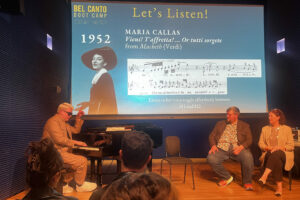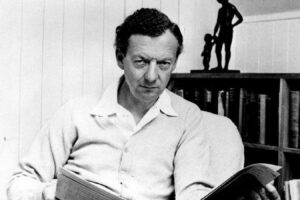

By the mid-2000s the company began to struggle and cutback its season to one opera. Despite a brief resurgence, the company, which presented over 90 operas on 57th Street, has virtually disappeared. Its most recent outing was Parasina d’Este over a year ago at Rose Hall at Jazz at Lincoln Center. Its Web site has not since been updated.
Among its accomplishments were many American premieres, including Edgar, Nerone, and Libuse. It also imported international stars for their New York debuts and through a young artists program fostered the careers of the likes of Renée Fleming, Vivica Genaux, and Deborah Voigt.
Riccardo Zandonai’s best-known opera (of four) hadn’t been heard in New York since the Met gave it 11 times two years after the opera’s 1914 premiere at the Teatro Reggio, with Frances Alda, Giovanni Martinelli, and Pasquale Amato in every performance.
66 years later, a lavish new production was mounted for Renata Scotto, Domingo, and Cornell MacNeil, notably telecast on 7 April 1984 and available on DVD. Given 26 times in two seasons, it got lost again until a 2013 revival with Eva-Maria Westbroek, Marcello Giordani, and Mark Delavan.
Aside from the Met telecast, it has been commercially recorded exactly twice: in 1950 with Maria Caiglia, and in 2013 by Theater Freiburg. A pirate with Magda Olivero (who also recorded excerpts for Decca in 1969) and Mario Del Monaco is quite juicy.
Based on a true story immortalized by Dante Alighieri in the Divina Commedia, Francesca provided the inspiration for no less than 27 operas between 1823 and 1914, mostly by forgotten composers (Salvatore Papparlado?) but including Saverio Mercadante, Ambroise Thomas, and Sergei Rachmaninoff, whose treatments occasionally get dusted off. It’s more likely that concertgoers and record collectors know it as a symphonic poem by Pyotr Ilyich Tchaikovsky.


























Comments